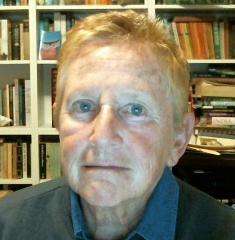Wagner’s operas have not featured much on the Perth opera scene, so a concert performance of Tristan und Isolde was more than welcome. There was a fully staged version here twelve years ago, conducted by Lionel Friend; the orchestra on that occasion was the West Australian Symphony Orchestra, and so it was again this time. They were great last time, but superlative here. Asher Fisch, Principal Conductor of WASO, is also well known in Australia as the conductor of the second Adelaide Ring Cycle (2004), so a major Wagnerian event seemed a natural outcome.
The sound created by WASO in the almost perfect acoustic of the Perth Concert Hall was uniquely thrilling. After a slightly hard-edged start, the orchestra coalesced into the completely absorbing sound world created by Wagner; one could hear the proverbial pin drop in every silent passage. All sections of the orchestra contributed equally to a gripping soundscape. One is compelled however to mention at least the wondrous cor anglais solo in the opening of Act 3, played by Leanne Glover, the flutes (Andrew Nicholson and Mary-Anne Blades), Sarah Bowman’s harp, the brass, strings, everyone really. Not just the overwhelming large moments but also the subtle small ones, such as the rippling sounds of spring at the beginning of Act 2, were captivating. Fischer was well across the totality of the work's architecture.
Tristan und Isolde has so little action, so there was little need of props, costumes and extraneous effects. It is so rooted in orchestral playing and singing for its success, that a concert performance seems a perfectly reasonable choice. The most significant theatrical element otherwise might be said to be the acting chops of the singers. In 2006, the biggest problem was the apparent indifference of the two eponymous soloists to each other; this was not the case here, even if park and bark was essentially the order of the day.
Heldentenor Stuart Skelton is well known to Australian audiences, although he is now truly an inhabitant of the global stage. A memorable Siegmund in Adelaide in 2004, he has continued to flourish. His Tristan was an unflagging, glorious lighthouse of Wagnerian singing, with inexhaustible power, vibrant resonance allied to warmth, subtlety and grace, and committed dramatic expression, with particularly beautiful singing at the end of Act 2.
German soprano Gun-Brit Barkmin, a recently celebrated Salome, was embarking here, it seems, on her first full length Isolde. As such, but also in its own right, it was a remarkable performance. After some slightly rough passages right at the beginning, she warmed up into producing thrilling high notes and shades of emotion, displaying convincing ecstasy in the appropriate moments. She flagged somewhat in Act 2, but was back on top of things in the third act, concluding with a beautifully shaped and heart-wrenching Liebestod.
Brangäne was sung by Russian mezzo soprano Ekaterina Gubanova who, in Act 1, produced a well-supported, nicely rounded tone although, oddly, when singing a cappella from offstage in Act 2, a wide vibrato opened up that was barely evident previously. Nevertheless she managed well in this rather ambiguous role. Estonian bass Ain Anger was a wonderful King Marke, with rich resonant tone and confident deep notes, as well as cutting a noble figure. Kurwenal was also well sung by Boaz Daniel, with a well-deployed, relatively light baritone, displaying the staunch loyalty required. Smaller parts were taken by Australian singers. Angus Wood, who has in past oscillated between tenor and baritone roles, was a suitably nasty Melot, Paul O’Neill was a mellifluous shepherd and Andrew Foote a rousing steersman.
The performance was rewarded with a standing ovation, not a common sight in Perth. In the enduring battle between opera adminstrations in Australia ("Nobody wants to sit through Wagner") and the opera-going public (Wagnerian devotees and those who’d like to know what it’s like), this was a decided win for the latter. If we can continue to hear performances like this, there can be no doubt that Wagner will gain a firmer foothold on the Australian stage.


